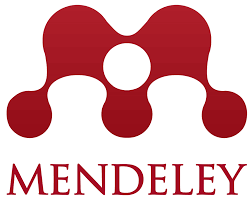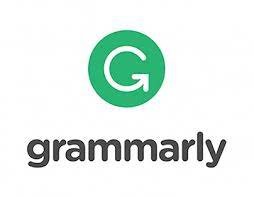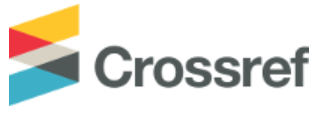An Analysis of Mathematical Self-Efficacy of the 10th Grade MIPA Students of MAN Salatiga
Abstract
The skills required in the 21st century are highly varied. One of them is a skill in the affective aspect, such a self-efficacy which needs to be developed. Self-efficacy can affect someones future success. Someone who has a high self-efficacy will overshoot something easier than reality. But on the other hand, a person with low self-efficacy will perceive something more difficult than reality. This causes someone to get stress and depression easily. This research aims to find out and describe the mathematical self-efficacy of students. This research is qualitative descriptive research. The subjects of the research were the students of the 10th grade MIPA of MAN Salatiga for the academic year 2018/2019 which amounted to 73 students. The instrument is used as a self-efficacy questionnaire format developed from a self-efficacy of Sutanto (2018). The instrument consists of 20 statements and has been validated by expert lecturers. The results of the research showed that 2.74% of students have very low self-efficacy, 21.92% of students have a low self-efficacy, 57.53% of students have a high self-efficacy, and 17.81% of students have very high self-efficacy. This shows that mathematical self-efficacy of students need to be trained in order to be enhanced.
Keywords
Full Text:
PDFReferences
Alifia, N. N., & Rakhmawati, I. A. (2018). Kajian kemampuan self-efficacy matematis siswa dalam pemecahan masalah matematika. Jurnal Elektronik Pembelajaran Matematika, 5(1), 44-54.
Agustinova, D. E. (2015). Memahami metode penelitian kualitatif: Teori & praktik. Yogyakarta: Calpulis.
Bandura, A. (1997). Self-efficacy the exercise of control. New York: W. H. Freeman.
Bandura, A. (2015). On deconstructing commentaries regarding alternative theories of self-regulation. Journal of Management, 41(4), 1025-1044. doi:https://doi.org/10.1177/0149206315572826
Gao, J. (2019). Sources of mathematics self-efficacy in Chinese students: A mixed-method study with q-sorting procedure. International Journal of Science and Mathematics Education, 18, 713-732. doi:10.1007/s10763-019-09984-1
Ghufron, M. N., & Suminta, R. R. (2010). Teori-teori psikologi. Yogyakarta: Ar-Ruzz Media.
Johar, R., Junita, E., & Saminan. (2018). Students mathematical communication ability and self-efficacy using team quiz learning model. International Journal on Emerging Mathematics Education, 2(2), 203-214. doi:http://dx.doi.org/10.12928/ijeme.v2i2.8702
Jumroh, Mulbasari, A. S., & Fitriasari, P. (2018). Self-efficacy siswa dalam pembelajaran matematika dengan strategi inquiry based learning di kelas VII SMP Palembang. Jurnal Pendidikan Matematika RAFA, 4(1), 29-42. doi:https://doi.org/10.19109/jpmrafa.v4i1.2480
Noer, S. H.. (2017). Strategi pembelajaran matematika. Yogyakarta: Matematika.
Novferma. (2016). Analisis kesulitan dan self-efficacy siswa SMP dalam pemecahan masalah matematika berbentuk soal cerita. Jurnal Riset Pendidikan Matematika, 3(1), 76-87. doi:https://doi.org/10.21831/jrpm.v3i1.10403
Nurfauziah, P., Faudziah, L., Nuryatin, S., & Mustaqimah, I. A. (2018). Analisis self- efficacy matematik siswa kelas VIII SMP 7 Cimahi dilihat dari gender. Jurnal Matematika dan Pendidikan Matematika, 3(1), 61-70. doi:https://doi.org/10.26594/jmpm.v3i1.1046
Pardimin. (2018). Self-efficacy matematika dan self-efficacy mengajar matematika guru matematika. Jurnal Ilmu Pendidikan, 24(1), 29-37. doi:http://dx.doi.org/10.17977/um048v24i1p29-37
Rustika, I. M. (2012). Efikasi diri: Tinjauan teori Albert Bandura. Buletin Psikologi Fakultas Psikologi Universitas Gadjah Mada, 20(1-2), 18-25.
Shadiq, F. (2014). Pembelajaran matematika; Cara meningkatkan kemampuan berfikir kritis. Yogyakarta: Graha Ilmu.
Subaidi, A. (2016). Self-efficacy siswa dalam pemecahan masalah matematika. Sigma, 1(2), 64-68. doi:http://dx.doi.org/10.0324/sigma.v1i1.68
Sudaryono. (2016). Metode penelitian pendidikan. Jakarta: Kencana.
Sutanto, A. (2018). Bimbingan dan konseling di sekolah. Jakarta: Prenadamedia Group.
DOI: https://doi.org/10.31002/ijome.v3i1.2242
Refbacks
- There are currently no refbacks.
Copyright (c) 2020 Indonesian Journal of Mathematics Education

This work is licensed under a Creative Commons Attribution-NonCommercial-ShareAlike 4.0 International License.

This work is licensed under a Creative Commons Attribution-NonCommercial-ShareAlike 4.0 International License.
Indexed by:
ISSN: 2654-3907 (print) | 2654-346X (online)
Jalan Kapten Suparman No.39, Magelang, Jawa Tengah, Indonesia 56116
Phone (0293) 364113 Fax. (0293) 362438
Website : http://jurnal.untidar.ac.id/index.php/ijome









